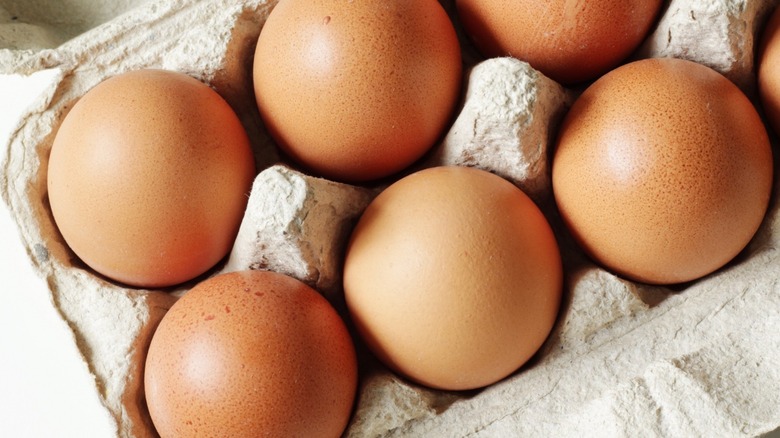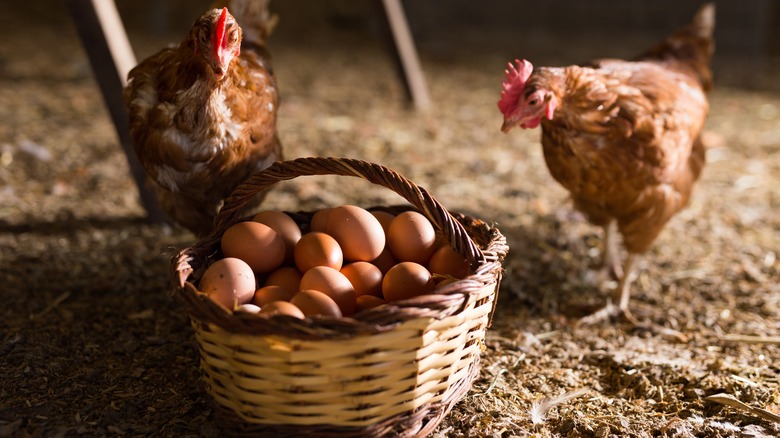Why Eggs Might Be Getting Cheaper Than Ever
Typically, eggs are an excellent and affordable source of protein. However, in early spring of 2022, the price of eggs began to skyrocket due to an unfortunate combination of factors. Ongoing inflation has increased the cost of groceries around the globe, and food inflation in the United States reached its highest point since 1979, sending grocery prices soaring, reports Bloomberg. While grocery prices everywhere were increasing, egg prices, which are usually a budget-friendly food, were especially impacted by other factors, including increased demand, high gas prices, and high corn prices, poultry and cattle farmer Chris Sullivan told ABC News.
However, the most notable reason for the increase in egg prices was the outbreak of highly pathogenic avian influenza (HPAI), which resulted in the deaths of over 30 million egg-laying poultry this spring, according to Bake Magazine. As a result, egg prices shot up a whopping 47%, reaching a peak benchmark price of $3.38 per dozen in July, according to Bloomberg; but luckily, the rising egg prices of the past few months finally appear to be coming to an end.
Why egg prices are on the decline
It appears egg prices are poised to go back down, which is good news for consumers. Russell Diez-Canseco, the CEO of food company Vital Farms, explained to Yahoo Finance that the "big changes you're seeing at the shelf today are driven by both a shortage of eggs due to the avian influenza outbreak earlier this year, as well as the inflation we've seen in commodity costs, including corn, soybeans, and diesel fuel," adding "the predictions on those things are starting to come down, and I would certainly expect you'd see commodity egg prices come down as a result as well." The price of eggs has already fallen about 37% since their peak in mid-July, with some falling over $1.00 per dozen, according to Bloomberg.
Eggs are becoming cheaper in large part because cases of the HPAI are declining. Amy Smith, the Vice President of Advanced Economic Solutions, told Bake Magazine that cases of avian influenza have "peaked," with no new cases being detected in laying flocks and only one commercial flock being infected as of the beginning of June. With more hens available to lay eggs, the price increases caused by the short supply are expected to subside. The steady decline in HPAI cases, along with decreased demand for the product, has led to a drop in egg prices that experts expect to continue.

